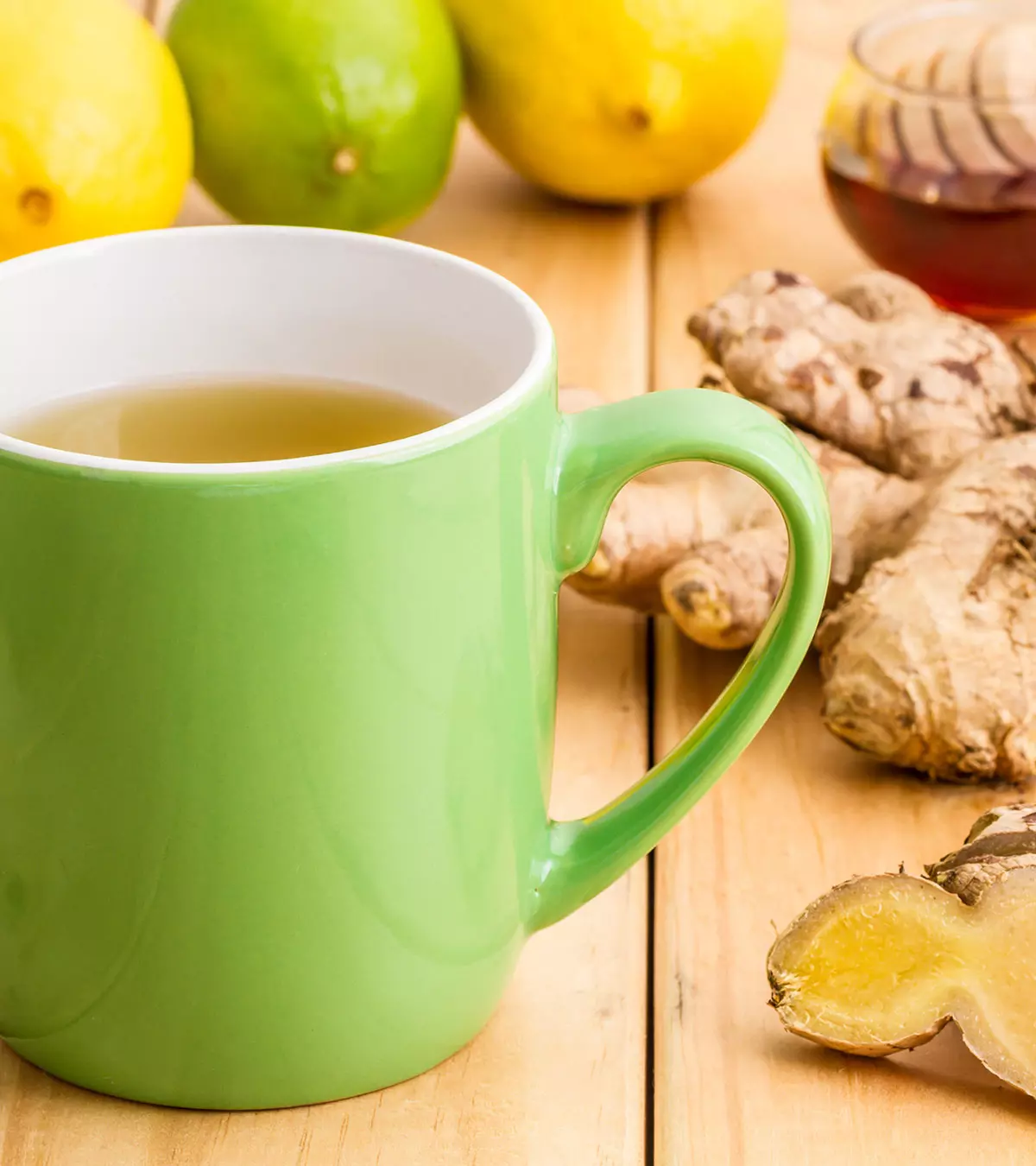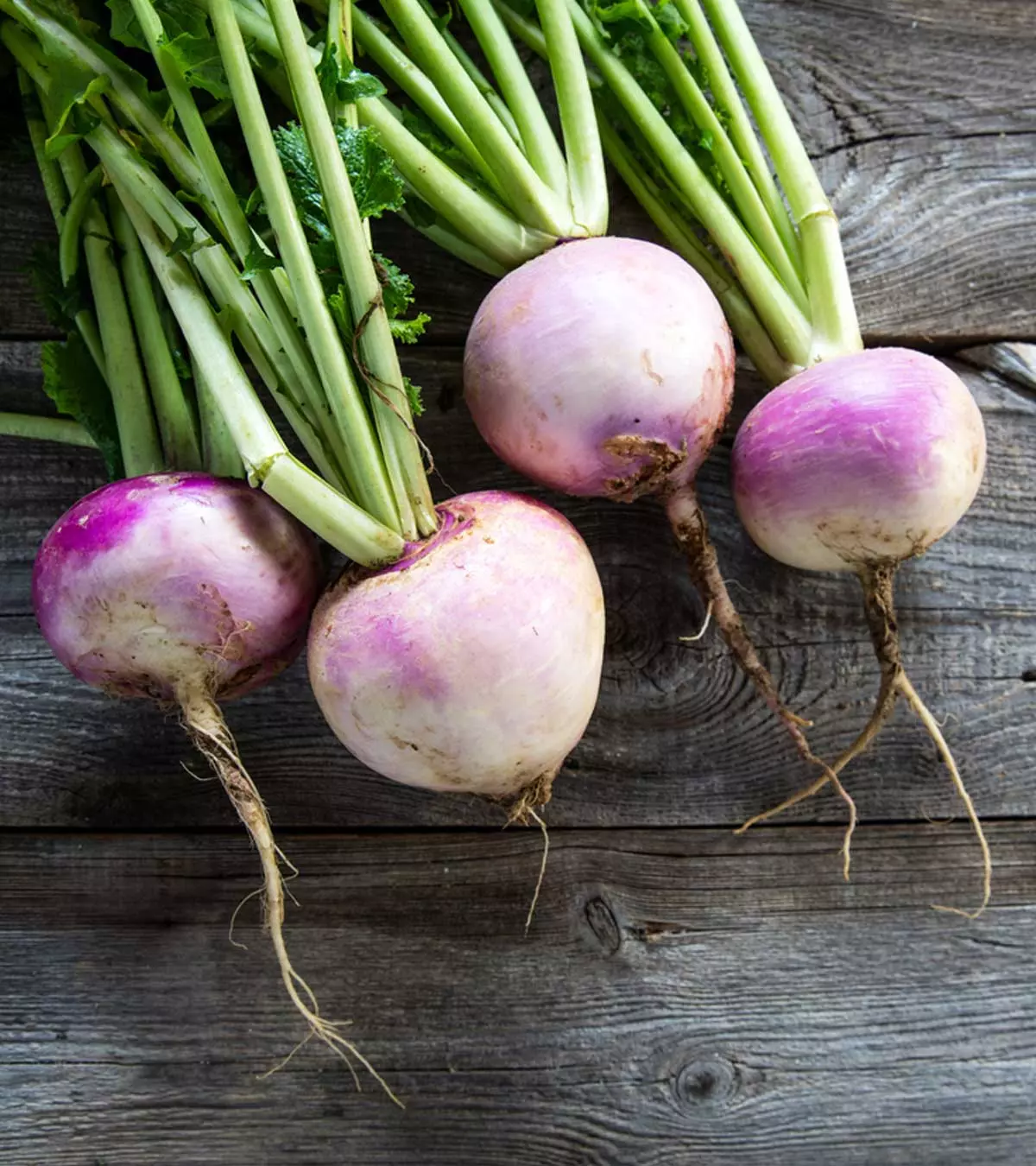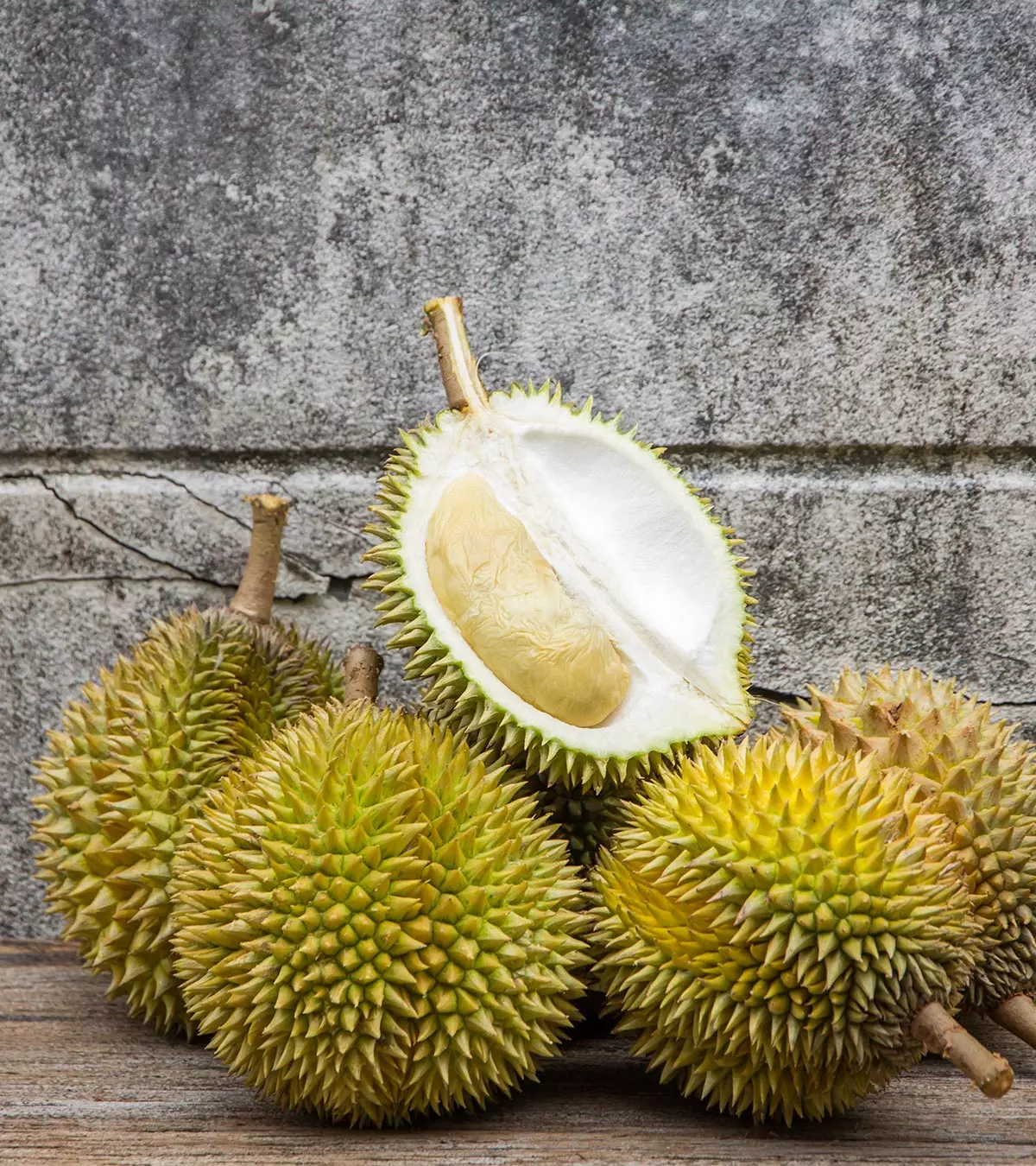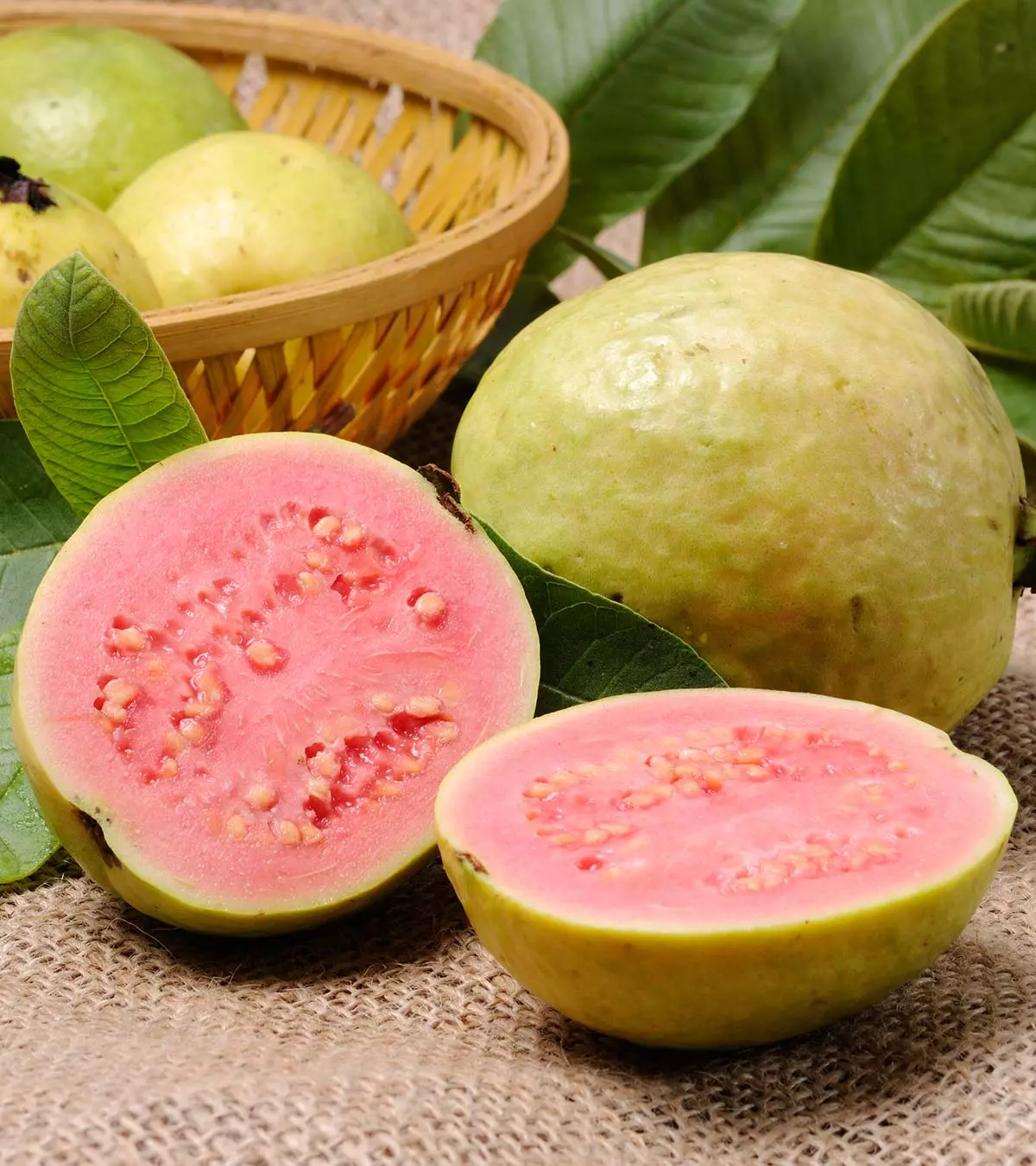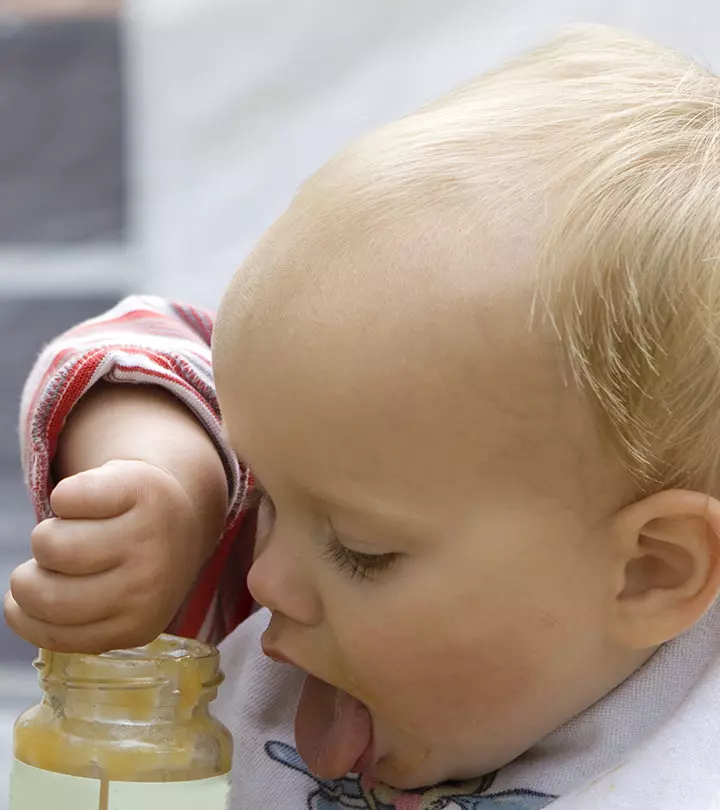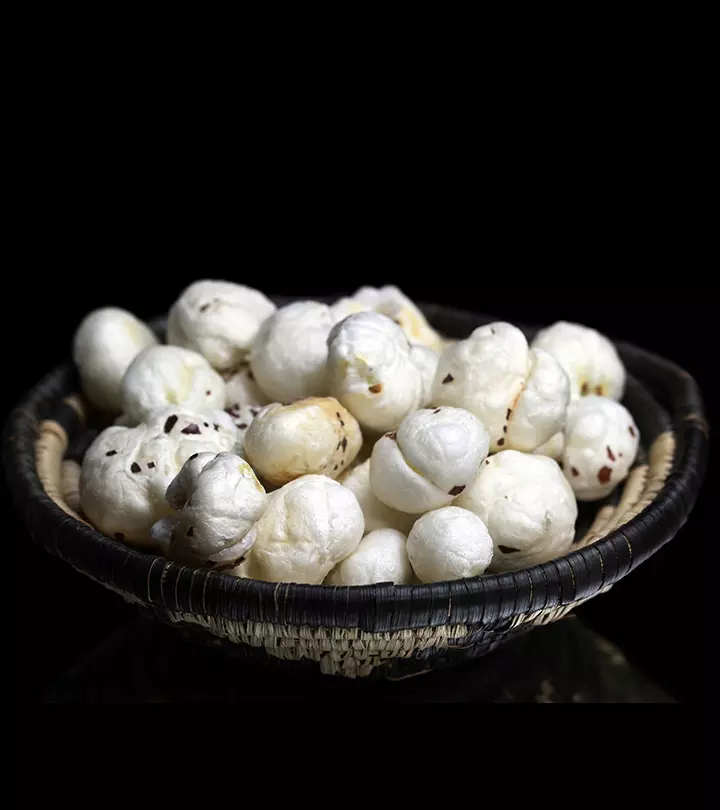
Image: Shutterstock
Lotus seeds are a low-calorie food commonly used for medicinal purposes in Asia. Since they are rich in calcium, magnesium, potassium, and iron, their intake is highly recommended for nursing moms. However, you may wonder if it is safe to eat lotus seeds during pregnancy. Read on as we give you the answer in this post.

Lotus seeds are often confused with popped seeds from the prickly water lily plant, also known as fox nut or makhana. The confusion happens because both the seeds look alike and have almost identical nutritional profiles. Besides, both are tasteless and fluffy and make a healthy snack option for people across ages.
Keep scrolling as we tell you all you need to know about lotus seeds and their benefits and side effects during pregnancy.
Key Pointers
- Makhana, also known as fox nut, is safe for pregnant women to consume in moderation and is a nutritious food.
- They contain a variety of nutrients including calcium, iron, phosphorus, vitamins, amino acids, and antioxidants.
- Makhana has several beneficial properties such as promoting sleep, preventing diarrhea, and regulating blood pressure and blood sugar levels.
- Makhana can be prepared in various ways such as roasting and flavoring with spices, or adding to curries and desserts for enhanced nutrition and taste.
- However, overconsumption of Makhana may lead to side effects such as bloating, flatulence, and constipation during pregnancy.
Is It Safe To Eat Makhana (Fox Nut) During Pregnancy?

Yes, it is safe to eat fox nuts, as they have a high nutritional value. They are rich in calcium, iron, phosphorus, manganese, potassium, B vitamins, amino acids, and antioxidants. These nutrients are especially good for expectant moms who are at higher risk of preeclampsia and gestational diabetes, and for fetal development.
However, you should eat them in moderation to stay healthy and avoid complications. Keep reading to learn more about the nutritional value of these seeds.
Nutritional value of makhana (Lotus seeds)
According to the USDA, the nutrition present in 100g of raw Lotus seeds is as follows (1):
| NUTRIENT | AMOUNT |
|---|---|
| Water | 77g |
| Calories | 89kcal |
| Carbohydrates | 17.28g |
| Protein | 4.13g |
| Fat | 0.53g |
| Vitamins | |
| Thiamin (Vitamin B1) | 0.171mg |
| Riboflavin (Vitamin B2) | 0.040mg |
| Niacin (Vitamin B3) | 0.429mg |
| Pyridoxine (Vitamin B6) | 0.168mg |
| Folic acid (Vitamin B9) | 28mcg |
| Electrolytes | |
| Potassium | 367mg |
| Sodium | 1mg |
| Minerals | |
| Calcium | 44mg |
| Iron | 0.95mg |
| Magnesium | 56mg |
| Zinc | 0.28mg |
| Phosphorus | 168mg |
| Lipids | |
| Total saturated fatty acids | 0.088g |
| Total monounsaturated fatty acids | 0.104g |
| Total polyunsaturated fatty acids | 0.312g |
g=grams; mg=milligrams; mcg=micrograms; IU=international unit
Benefits Of Eating Makhana (Lotus Seeds) During Pregnancy
The following are some of the many health benefits of consuming makhana in pregnancy:
- Helps sleep better: Lotus seeds could help you sleep because of their mild sedative properties. The vitamins and antioxidants in the seeds also regulate the functioning of the body, allowing you a regular sleep routine (2).
- Controls diarrhea: Makhana can be a remedy for diarrhea caused by hormonal imbalance in pregnant women. The fox nuts contain small amounts of alkaloids that contribute to the antispasmodiciA drug that relieves or prevents spasms, especially of smooth muscle. action of the intestines, thereby alleviating diarrhea (3).
- Helps regulate blood pressure: The embryo of lotus seeds contains a bitter component called “isoquinoline,” which calms and dilates the blood vessels, thereby helping in controlling blood pressure (3).
- Hydrates skin: Lotus seeds are known for skin-hydrating properties and keep it moisturized from within (4). Lotus seeds tea might help prevent loss of skin moisture, reduce abnormal keratinocytesiPrimary cell type found in the outermost layer of the skin. formation and inhibit protein oxidation.

- Regulates blood sugars: Sugar levels in the blood could elevate during pregnancy (gestational diabetes). As per the Centers for Disease Control and Prevention, 2% to 10% of pregnancies in the United States are affected by GD every year. Makhana contains B complex vitamins, high fiber, and low calories that might help burn calories and lower blood glucose levels (5).
- Aids fetal development: Lotus seeds are a rich source of proteins, which is necessary for the nervous system and brain development (6).
 Quick fact
Quick factHow To Eat Makhana During Pregnancy?

Singapore-based obstetrician and gynecologist Dr. Tan Poh Kok suggests, “Roasted lotus seeds are a healthy snack and a great alternative to processed foods. You can add them to soups, salads, or smoothies for an extra nutritional boost. I recommend making a porridge with lotus seeds, which is both nutritious and comforting.”
You may prefer eating them both raw and cooked. Here is how you can enjoy the tasty makhana in your diet.
- Make delicious popcorn with the flavor of your choice by adding salt, butter or honey to make a nutrient-rich snack.
- Stir fry with some oil or ghee and sprinkle spices for a yummy snack
- Also, use in sweet dishes such as rice porridge for a healthy diet and to satisfy your pregnancy cravings.
 Quick tip
Quick tipHow Much Makhana Can Be Eaten In A Day?
You may take about two to three handfuls of lotus seeds to yield the benefits mentioned earlier. Makhana could also cause certain side effects in a few pregnant women.
What Could Be The Side Effects Of Eating Makhana During Pregnancy?

Your doctor may have a few valid reasons when he or she tells you not to include fox nuts in your diet.
- Overconsumption of the seeds could lead to flatulenceiPassing of gas from the digestive system out of the back passage. , constipation and bloating.
- They tend to reduce blood sugar levels. If you already have diabetes, you should be careful of not eating them in excess.
- Some people may have allergies to seeds. In case you feel uneasy upon their consumption, stop eating them and consult your doctor.
Keep reading to find some more try-worthy Makhana (lotus seeds) recipes for pregnant women.
Pregnancy-Friendly Makhana Recipes
1. Phool makhana curry (lotus seeds gravy)
You will need:
- 1 cup makhana
- ½ cup peas
- 1 onion
- 1 cup tomato puree
- 2tsp red chili powder
- 1tbsp coriander powder
- 1/2tsp turmeric powder
- 1tsp spice blend (garam masala)
- 1/4tsp cumin seeds
- 2tbsp oil
- Salt for taste
- Coriander leaves for garnish
For paste:
- 1 large onion
- 5 garlic cloves
- 1 small piece of ginger
- 1tsp poppy seeds
- 5 cashew nuts
- 1tsp oil
How to make:For making the paste:
- Heat oil in a pan, add sliced onions and saute them.
- Add chopped pieces of ginger, garlic and saute until they change their color.
- Remove the pan from heat and add cashews, poppy seeds and mix properly.
- Allow the mixture to cool, and transfer into a blender.
- Make a smooth paste by adding some water and set it aside.
For making curry:
- Heat the pan, and add lotus seeds. Roast them until they turn crunchy. Keep them aside.
- Heat some oil in the pan and add cumin seeds. Allow them to sizzle.
- Add onions and saute them for a minute. Then add the onion paste and cook for two minutes.
- Add the pureed tomato, coriander powder, red chili powder, turmeric and mix properly.
- Cook the mixture on a low flame for four to five minutes until the oil separates.
- Add peas, salt, and half a cup of water. Mix well and simmer for five minutes.
- Add the roasted lotus seeds, simmer for one more minute and turn off the heat.
- As the mixture cools down, the makhana will absorb the water and the curry thickens.
- Before eating, reheat the curry, top with coriander leaves and have with rice or roti.
 Quick tip
Quick tip2. Atta gond makhana laddoo
You will need:
- ½ cup makhana (fried and blended)
- 1/4 cup edible gum, Gond (fried and blended)
- 2 cups wheat flour
- ½ cup sugar powder
- 1 cup ghee
- 2tbsp almonds
- 2tbsp cashew nuts
- ½ cup jaggery
- 1tbsp pista
How to make:
- In a pan, add ghee, wheat flour and roast over a low flame until it turns brown.
- Turn off the flame, and add sugar powder, almonds, cashew nuts, edible gum, jaggery, and blended makhana.
- Take small portions of the mix, and roll into balls.
- Top the laddoos with pista, and enjoy while they’re still fresh.
3. Makhana kheer
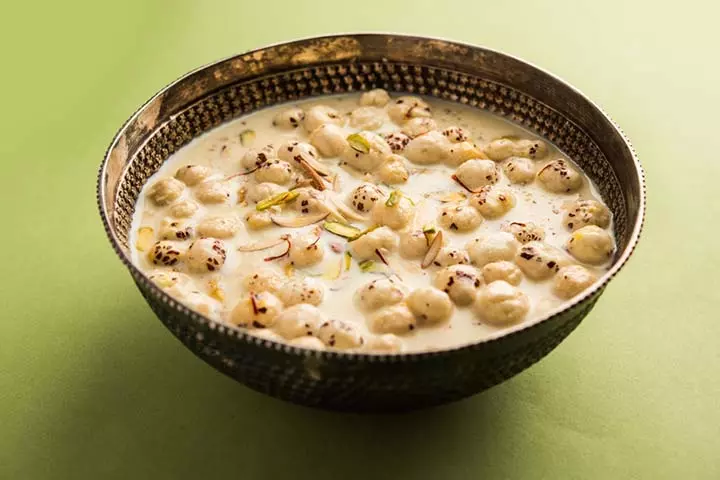
You will need:
- 3 cups makhana
- 6 cups milk
- 5 almonds (chopped)
- 8-10 raisins
- 1/2 cup grated coconut
- 1/2tsp cardamom powder
- ½ tin sweetened condensed milk
- 1/2tsp pure ghee
How to make:
- Fry the lotus seeds in ghee and crush them.
- In a pan, add crushed makhana, milk and cook on slow flame for five to ten minutes.
- Add grated coconut and continue cooking for some more time while stirring frequently.
- As it gets thick, add sweetened condensed milk and cook for five more minutes until you reach the preferred consistency.
- Add cardamom powder, top with almonds and raisins.
- You can have it hot or cold.
Will Makhana Help In Recovery After Miscarriage?
Lotus seeds will tone the spleen and kidneys, building up the energy or Qi and blood that helps in stopping the bleeding associated with miscarriage. If you have a history of miscarriage, you might consider taking makhana as they help restore energy levels in the body (7).
Frequently Asked Questions
1. How can lotus seeds help alleviate morning sickness in pregnant women?
Lotus seeds contain vitamin B6 or pyridoxine (1). Studies show that vitamin B6 effectively relieves nausea in pregnant women (9).
2. How can lotus seeds help improve circulation and reduce swelling during pregnancy?
Lotus seeds are good sources of B vitamins which may help form red blood cells (11). They also contain zinc, which has anti-inflammatory properties (11). Together they may help reduce swelling. However, there is no evidence that lotus seeds effectively reduce swelling during pregnancy.
3. Is it safe to eat lotus seeds during the first trimester of pregnancy?
There are no restrictions on the consumption of lotus seeds during the first trimester of pregnancy.
Lotus seeds are rich in calcium, iron, B vitamins, and many other nutrients. Therefore they play a key role in promoting better sleep, controlling diarrhea, and helping fetal development. You can also consider eating lotus seeds during pregnancy as they help maintain health and overall well-being. However, it helps if you are careful about overconsumption because it may cause constipation, bloating, and allergies. Always consult a doctor before consuming lotus seeds during pregnancy, and if you notice any side effects, it is better to avoid them.
Infographic: Other Parts Of Lotus That Are Safe To Consume During Pregnancy
The stem and roots of the lotus plant are edible. But are they safe to be consumed during pregnancy? We will explore the answer to this question in the following infographic. So, read on to learn about pregnancy-safe parts of the lotus plant and how you can include them in your diet.
Some thing wrong with infographic shortcode. please verify shortcode syntax
Some thing wrong with illustration image shortcode. please verify shortcode syntax
Lotus seeds are a crunchy and tasty delight that possess amazing health benefits! Learn how they can help improve your overall health and well-being.
References
1. Lotus seeds, raw, FDC ID: 168591; Food Data Central; USDA
2. Kyungae Jo et al.; Changes in Drosophila melanogaster Sleep-Wake Behavior Due to Lotus (Nelumbo nucifera) Seed and Hwang Jeong (Polygonatum sibiricum) Extracts; Prev Nutr Food Sci (2017)
3. Subhuti Dharmananda; Lotus Seed: Food And Medicine; Institute for Traditional Medicine (2002)
4. Su-Yeon Kim & Gap-Soon Moon; Photoprotective Effect of Lotus (Nelumbo nucifera Gaertn.) Seed Tea against UVB Irradiation; Prev Nutr Food Sci. (2015)
5. Nishkruti R Mehta et al.; Nelumbo Nucifera (Lotus): A Review on Ethanobotany, Phytochemistry and Pharmacology; IJPBR (2013)
6. Steven Bailey & Larry Trivieri; Juice Alive: The Ultimate Guide to Juicing Remedies; page 86
7. Alexandrina Merritt; Topics In Menopause – Part Two; Journal Of Chinese Medicine
8. Calcium in Pregnancy; American Pregnancy Association
9. Vitamin B6 for Morning Sickness; Kaiser Permanente
10. Magdalena Jarosz et al.;Antioxidant and anti-inflammatory effects of zinc. Zinc-dependent NF-κB signaling; NCBI
11. Vitamin B; Better Health
Community Experiences
Join the conversation and become a part of our nurturing community! Share your stories, experiences, and insights to connect with fellow parents.
Read full bio of Dr. Shikha Sharma

Dr. Tan Poh Kok (PK Tan) is a senior consultant obstetrician and gynecologist at PK Women’s Specialist Centre in Singapore. He got trained at the National University of Singapore and the Royal College of Obstetricians and Gynaecology in the UK. Dr. Tan specializes in women’s health issues, including endometriosis, ovarian cysts, cervical cancer, fertility problems, and uro-gynecology.
Dr. Tan Poh Kok (PK Tan) is a senior consultant obstetrician and gynecologist at PK Women’s Specialist Centre in Singapore. He got trained at the National University of Singapore and the Royal College of Obstetricians and Gynaecology in the UK. Dr. Tan specializes in women’s health issues, including endometriosis, ovarian cysts, cervical cancer, fertility problems, and uro-gynecology.
Read full bio of Swati Patwal
Read full bio of Rebecca Malachi
Read full bio of Aneesha Amonz






